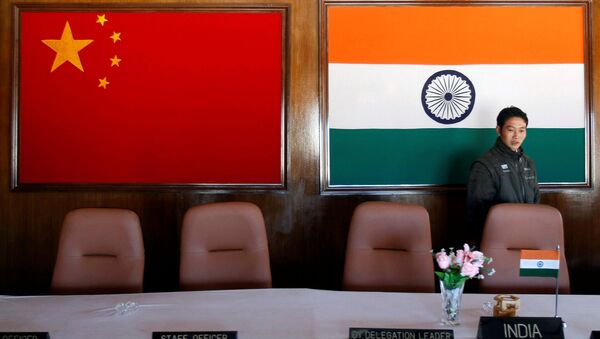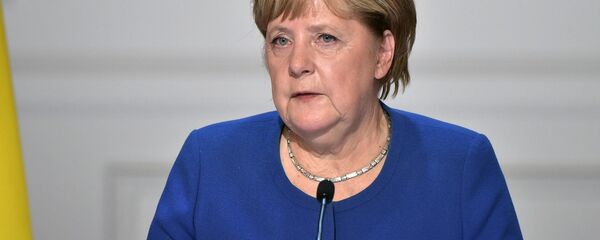New Delhi (Sputnik) — Indian geostrategist Brahma Chellaney set the tone of the latest discourse on the Indo-China trade relationship with his column in the newspaper The Hindustan Times by claiming that "the lopsided trade relationship makes India essentially a colonial-style raw-material appendage of the state-led Chinese economy, which increasingly dumps manufactured goods".
China's estimated trade surplus with India was $63 billion in 2018.
"China's public diplomacy aims to underpin its "win-win" policy toward India — engagement with containment" Chellany points out referring to the Chinese foreign minister's views suggesting greater people to people engagement.
In recent times, there has been a considerable momentum in protests by Indians against Chinese products.
Foreign Policy and international trade observers have opined that China's renewed focus on India has more to do with the present geopolitical scenario and international trade equations.
"The Indian market has become even more attractive for China which is under a lot of pressure due to the US-China trade war and the multiple bans on Chinese ICT equipment providers. These factors account for China's charm offensive on India just a short interval after the Doklam standoff", Smita Purushottam, former diplomat and founder-chairperson of the organisation SITARA (Science, Indigenous Technology and Advanced Research Accelerator) told Sputnik.
India has already allowed China to hollow out light industries, destroying millions of jobs. India cannot allow any further inroads into its markets, she adds.
The Indian media has also been extensively covering the influx of Chinese companies for data mining.
"Chinese companies — and western ones — haven't been shy about describing data as 'the new oil'. And for them, the Indian market is only second to China's in terms of its offerings. India also happens to be a market with among the poorest regulations and protections when it comes to data security. A fortunate combination for them", writes Ananth Krishnan, a visiting fellow at Brookings India on the news portal The Wire.
Experts are also not shying away from calling the Indo-Chinese trade situation a manifestation of Chinese superiority in strategizing things.
"The Chinese enjoying huge trade surpluses vis a vis India and undercutting Indian technological companies in India are a combination of superior Chinese strategies and Indian systemic sloth. Warfare has evolved over time wherein national strategies are fine-tuned to achieving a competitive economic advantage over other nations", modern warfare strategist Pavithran Rajan shared with Sputnik.
Former Indian diplomat Dilip Sinha in his column for The Economic Times says that for India "China's current conciliatory mood is a good time to press for immediate steps to correct the imbalance in bilateral trade and make relations with Taiwan more formal. It is also time to push the envelope on Tibet".
Sinha's response was to an article in an Indian daily by Chinese Foreign Minister Wang Yi coinciding with his India visit in December in which he laid down a five-point vision for 2019 Indo-Chinese ties. He talked of strengthening political trust with neighbours, safeguarding regional peace, and promoting domestic reform.
The views and opinions expressed by the speaker in this article are those of the speaker and do not necessarily reflect the position of Sputnik.




